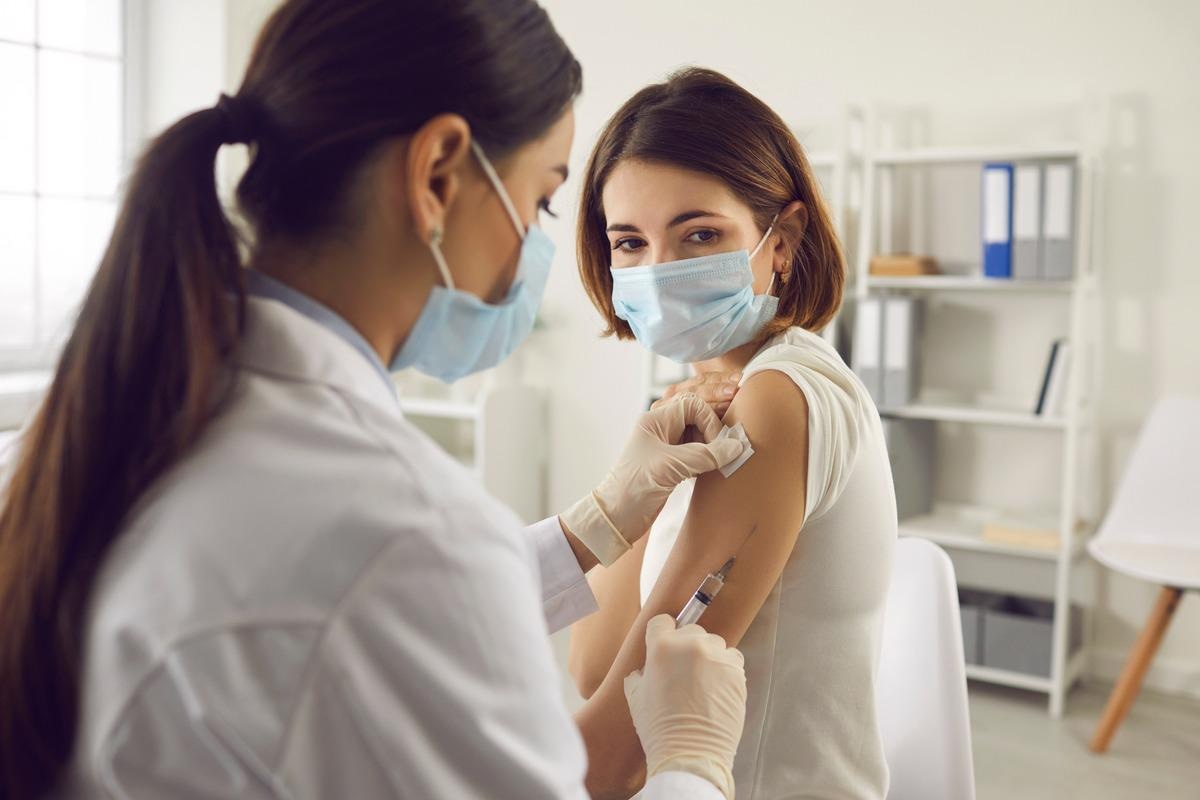In a new study, a team of researchers studied the duration of protection provided by the coronavirus disease 2019 (COVID-19) vaccines available in the United States (US) against breakthrough infections, hospitalizations, and intensive care unit (ICU) admissions.
 Study: Durability of Protection against COVID-19 Breakthrough Infections and Severe Disease by Vaccines in the United States. Image Credit: Studio Romantic/Shutterstock
Study: Durability of Protection against COVID-19 Breakthrough Infections and Severe Disease by Vaccines in the United States. Image Credit: Studio Romantic/Shutterstock
The researchers' findings were published as a pre-print study posted to the medRxiv* server, whilst the article undergoes peer review.
Introduction
Three currently approved COVID-19 vaccines – Ad26.COV2.S, BNT162b2, and mRNA-1273 – have been confirmed to have high vaccine effectiveness (VE) against severe acute respiratory syndrome coronavirus 2 (SARS-CoV-2) across the globe. However, recent studies show a substantial waning of VE over time, highlighting an urgent need to further investigate the duration of vaccine protection in adults against newly emerging variants of the SARS-CoV-2 virus.
About the study
In this study, the researchers intended to analyze the durability of protection provided by all the three approved and authorized vaccines against breakthrough infections, hospitalizations, and ICU admissions, while taking into consideration the variables such as calendar time, residential location, age, sex, and comorbid conditions.
The authors analyzed the likelihood of an individual contracting COVID-19 breakthrough infection and being recommended hospitalization or ICU admission in each successive 28-day time period, as compared to the first 28-day time period after the vaccination. Here, the durability of VE was defined to have relatively equal odds of the durability of VE across the time period studied.
The data was categorized based on age cohorts, taking into account the documentation of COVID-19-related diagnoses, laboratory orders, procedures, treatments, or COVID-19 vaccinations. Individuals eligible for the study were defined as adults over 18 years of age who were vaccinated according to the recommended immunization schedule. Individuals should be vaccinated with two doses 28-42 days apart for mRNA-1273 vaccines and two doses 21-42 days apart for the BNT62b2 vaccine, while only one dose was required for the Ad26.COV2.S vaccine.
Results
The population groups studied in this research differed in vaccine-related variables including vaccine authorization and eligibility timing, as well as differences in distribution and availability. In the group of individuals vaccinated with Ad26.COV2.S, the average age was 50.9 years old, while for the BNT162b2 group, it was 53.1 years old and for the mRNA-1273 group, it was 56.6 years old.
The research showed that there was no waning in the protection provided by the Ad26.COV2.S vaccine against breakthrough infection in the first three months after the vaccination; however, a moderate amount of waning in protection was seen in month 4 and in month 5 onwards.
For individuals vaccinated with either BNT162b2 or mRNA-1273 vaccines, the chances of a breakthrough infection increased in each successive month after the vaccination. The baseline for the estimated VE for each consecutive month after the vaccination was highest for mRNA-1273, followed by BNT162b2 and Ad26.COV2.S. Furthermore, Ad26.COV2.S exhibited the smallest reduction in VE over time, followed by mRNA-1273, and then BNT162b2.
No evidence of waning protection against COVID-19-related hospitalization was seen in individuals vaccinated with the Ad26.COV2.S vaccine. The reduction in protection against COVID-19-related hospitalization was significant and continued to decrease in the subsequent months in individuals vaccinated with BNT162b2. However, the change in the protection provided against COVID-19-related hospitalization by the mRNA-1273 vaccine over time was insignificant.
The study encountered no waning in protection against COVID-19-related ICU admissions for any of the three vaccines over any period.
Conclusion
The study findings showed that all three vaccines tested showed substantial protection against ICU admissions. A durable level of protection against breakthrough infections and hospitalizations was showcased by the Ad26.COV2.S vaccine due to its durable antibody and cellular immune response. However, the Ad26.COV2.S vaccine exhibited a lower VE after a single dose than that of the two-dose mRNA vaccines at baseline. These trends remained consistent across all age groups and all individuals with comorbidities.
There was substantial evidence to prove that mRNA-1273 exhibited waning protection against breakthrough infections and some evidence for hospitalization. For BNT162b2, the evidence towards waning protection against breakthrough infections and for COVID-19-related hospitalization was more apparent.
With the ongoing spread of COVID-19 across the globe, many countries are now adopting a new immunization schedule with three doses of the mRNA vaccines or two doses of Ad26.COV2.S. The duration and durability of the three vaccines studied in different age cohorts need further investigation as the SARS-CoV-2 virus continues to spread and mutate into new and more dangerous variants.
*Important notice
medRxiv publishes preliminary scientific reports that are not peer-reviewed and, therefore, should not be regarded as conclusive, guide clinical practice/health-related behavior, or treated as established information
- Amanda Zheutlin, Miles Ott, Ran Sun, Natalia Zemlianskaia, Meagan Rubel, Jennifer Hayden, Breno Neri, Tripthi Kamath, Najat Khan, Sebastian Schneeweiss, Khaled Sarsour. (2022). Durability of Protection against COVID-19 Breakthrough Infections and Severe Disease by Vaccines in the United States. medRxiv. doi: https://doi.org/10.1101/2022.01.05.22268648 https://www.medrxiv.org/content/10.1101/2022.01.05.22268648v1
Posted in: Medical Science News | Medical Research News | Disease/Infection News
Tags: Antibody, Coronavirus, Coronavirus Disease COVID-19, covid-19, Immune Response, Immunization, Intensive Care, Laboratory, Research, Respiratory, SARS, SARS-CoV-2, Severe Acute Respiratory, Severe Acute Respiratory Syndrome, Syndrome, Vaccine, Virus

Written by
Susha Cheriyedath
Susha has a Bachelor of Science (B.Sc.) degree in Chemistry and Master of Science (M.Sc) degree in Biochemistry from the University of Calicut, India. She always had a keen interest in medical and health science. As part of her masters degree, she specialized in Biochemistry, with an emphasis on Microbiology, Physiology, Biotechnology, and Nutrition. In her spare time, she loves to cook up a storm in the kitchen with her super-messy baking experiments.
Source: Read Full Article
